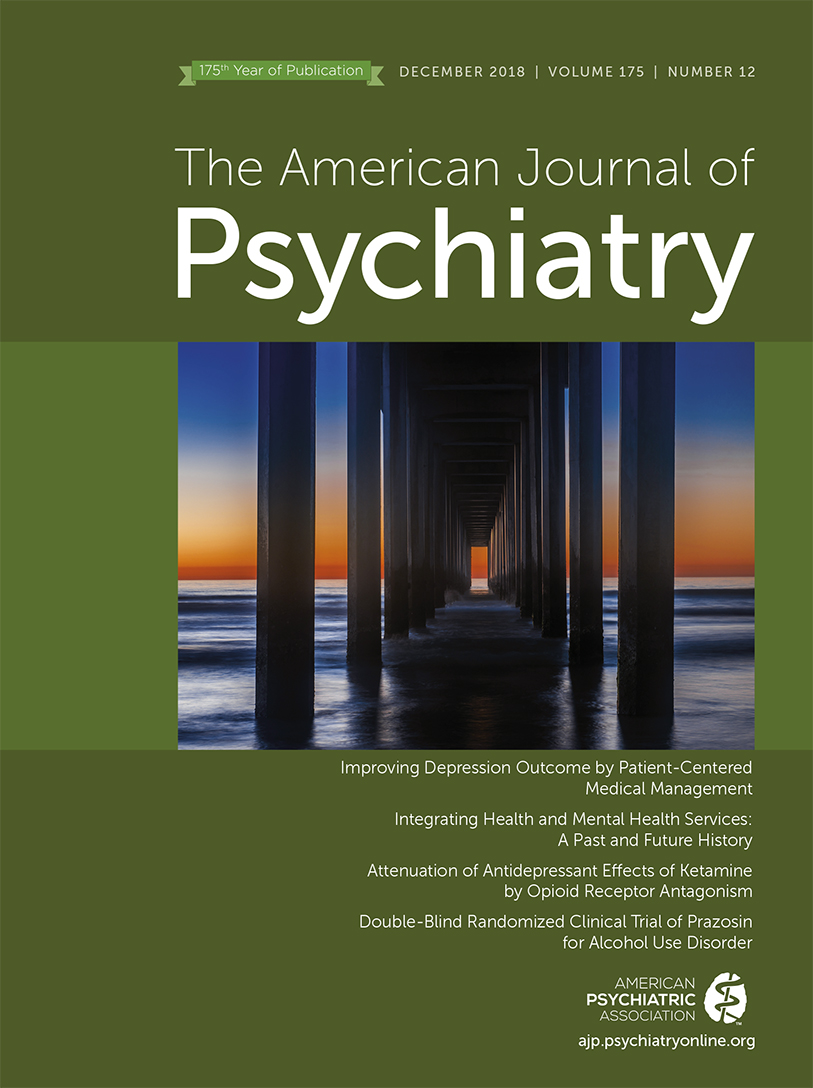No Effect of Lamotrigine in Subgroups of Patients With Borderline Personality Disorder: Response to Smith
To the Editor: While efficacy studies are important in establishing whether treatments have the potential to benefit patients, studies of clinical effectiveness generate information that is more useful to those who use and provide health care services. In the real world, most people are not completely adherent with the treatment they are offered, and many have coexisting conditions that may influence their response to treatment. The LABILE (Lamotrigine and Borderline Personality Disorder: Investigating Long-Term Effects) study was intentionally designed to examine the clinical effectiveness of lamotrigine for people with borderline personality disorder. Many participants did not take their medication as prescribed over the first 12 weeks of the study, and half were using alcohol or other drugs at a level that indicated a need for intervention.
Nonetheless, we are grateful to Dr. Smith for his suggestion that data from this trial could be used to explore whether lamotrigine could help some subgroups of people with borderline personality disorder. As requested, we have examined mean scores on the Zanarini Rating Scale for Borderline Personality Disorder (ZAN-BPD) at 12 weeks in subsamples of people who were adherent with medication during this period, those without coexisting substance misuse, and those who had a recent history of deliberate self-harm. While conducting this analysis, we identified a typographical error that appeared in our article (1) but not in the monograph that has subsequently been published that provides additional information about the trial (2). The number of participants in the placebo arm of the trial who reported deliberate self-harm in the 6 months prior to randomization was 87 (63%), not 51 (37%) as erroneously stated in our article. Among 98 participants who did not report substance misuse at baseline, the difference in the mean ZAN-BPD score at 12 weeks between those prescribed lamotrigine and those prescribed placebo was 0.90 (95% CI=−1.56 to 3.37). Among 181 participants who adhered to study medication during the first 12 weeks, the difference in the mean ZAN-BPD score between those prescribed lamotrigine and those prescribed placebo was 0.52 (95% CI=−2.41 to 1.36), and among the 143 participants who reported deliberate self-harm at baseline, the difference in the mean ZAN-BPD score at 12 weeks between those prescribed lamotrigine and those prescribed placebo was −0.60 (95% CI=−2.73 to 1.54).
Since the publication of the results of the LABILE trial, many people have told us of their surprise that the study generated negative findings and have asked us whether there was something about the group we recruited or the design of the trial that led to this result. In keeping with findings from previous research examining the views of psychiatrists (3), some clinicians have told us that they have seen firsthand how people with borderline personality disorder make a good response when prescribed medication. However, we would argue that this experience is entirely in keeping with the results of the LABILE trial that demonstrate that, when people are offered clear information by staff who provide structured follow-up, there are likely to be clinically important reductions in symptoms of emotional distress.
1 : The clinical effectiveness and cost-effectiveness of lamotrigine in borderline personality disorder: a randomized placebo-controlled trial. Am J Psychiatry 2018; 175:756–764Link, Google Scholar
2 : Lamotrigine for people with borderline personality disorder: a RCT. Health Technol Assess 2018; 22:1–68Crossref, Google Scholar
3 : Prescribing of psychotropic medication for personality disordered patients in secure forensic settings. J Forensic Psychiatry Psychol 2012; 23:200–216Crossref, Google Scholar



